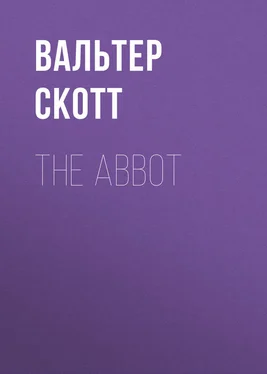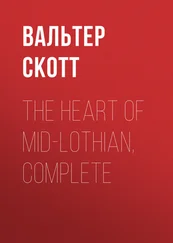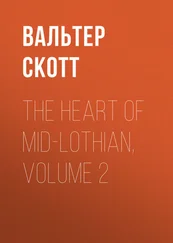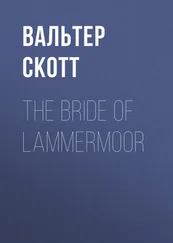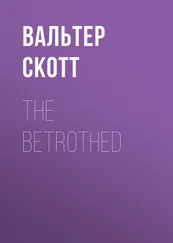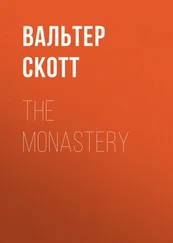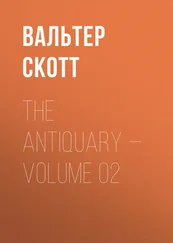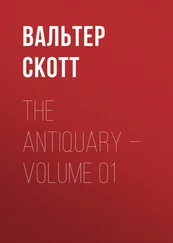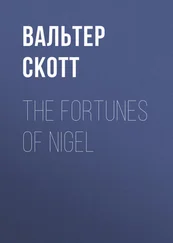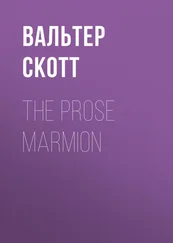Вальтер Скотт - The Abbot
Здесь есть возможность читать онлайн «Вальтер Скотт - The Abbot» — ознакомительный отрывок электронной книги совершенно бесплатно, а после прочтения отрывка купить полную версию. В некоторых случаях можно слушать аудио, скачать через торрент в формате fb2 и присутствует краткое содержание. Жанр: foreign_antique, foreign_prose, Альтернативная история, на английском языке. Описание произведения, (предисловие) а так же отзывы посетителей доступны на портале библиотеки ЛибКат.
- Название:The Abbot
- Автор:
- Жанр:
- Год:неизвестен
- ISBN:нет данных
- Рейтинг книги:4 / 5. Голосов: 1
-
Избранное:Добавить в избранное
- Отзывы:
-
Ваша оценка:
- 80
- 1
- 2
- 3
- 4
- 5
The Abbot: краткое содержание, описание и аннотация
Предлагаем к чтению аннотацию, описание, краткое содержание или предисловие (зависит от того, что написал сам автор книги «The Abbot»). Если вы не нашли необходимую информацию о книге — напишите в комментариях, мы постараемся отыскать её.
The Abbot — читать онлайн ознакомительный отрывок
Ниже представлен текст книги, разбитый по страницам. Система сохранения места последней прочитанной страницы, позволяет с удобством читать онлайн бесплатно книгу «The Abbot», без необходимости каждый раз заново искать на чём Вы остановились. Поставьте закладку, и сможете в любой момент перейти на страницу, на которой закончили чтение.
Интервал:
Закладка:
“Nay, but, my Halbert, do but look at the boy,” said the Lady, “and see whether he has not the air of being intended by Heaven for something nobler than a mere peasant. May he not be designed, as others have been, to rise out of a humble situation into honour and eminence?”
Thus far had she proceeded, when the consciousness that she was treading upon delicate ground at once occurred to her, and induced her to take the most natural, but the worst of all courses in such occasions, whether in conversation or in an actual bog, namely, that of stopping suddenly short in the illustration which she had commenced. Her brow crimsoned, and that of Sir Halbert Glendinning was slightly overcast. But it was only for an instant; for he was incapable of mistaking his lady’s meaning, or supposing that she meant intentional disrespect to him.
“Be it as you please, my love,” he replied; “I owe you too much to contradict you in aught which may render your solitary mode of life more endurable. Make of this youth what you will, and you have my full authority for doing so. But remember he is your charge, not mine – remember he hath limbs to do man’s service, a soul and a tongue to worship God; breed him, therefore, to be true to his country and to Heaven; and for the rest, dispose of him as you list – it is, and shall rest, your own matter.”
This conversation decided the fate of Roland Graeme, who from thence-forward was little noticed by the master of the mansion of Avenel, but indulged and favoured by its mistress.
This situation led to many important consequences, and, in truth, tended to bring forth the character of the youth in all its broad lights and deep shadows. As the Knight himself seemed tacitly to disclaim alike interest and control over the immediate favourite of his lady, young Roland was, by circumstances, exempted from the strict discipline to which, as the retainer of a Scottish man of rank, he would otherwise have been subjected, according to all the rigour of the age. But the steward, or master of the household – such was the proud title assumed by the head domestic of each petty baron – deemed it not advisable to interfere with the favourite of the Lady, and especially since she had brought the estate into the present family. Master Jasper Wingate was a man experienced, as he often boasted, in the ways of great families, and knew how to keep the steerage even when the wind and tide chanced to be in contradiction.
This prudent personage winked at much, and avoided giving opportunity for farther offence, by requesting little of Roland Graeme beyond the degree of attention which he was himself disposed to pay; rightly conjecturing, that however lowly the place which the youth might hold in the favour of the Knight of Avenel, still to make an evil report of him would make an enemy of the Lady, without securing the favour of her husband. With these prudential considerations, and doubtless not without an eye to his own ease and convenience, he taught the boy as much, and only as much, as he chose to learn, readily admitting whatever apology it pleased his pupil to allege in excuse for idleness or negligence. As the other persons in the castle, to whom such tasks were delegated, readily imitated the prudential conduct of the major-domo, there was little control used towards Roland Graeme, who, of course, learned no more than what a very active mind, and a total impatience of absolute idleness led him to acquire upon his own account, and by dint of his own exertions. The latter were especially earnest, when the Lady herself condescended to be his tutress, or to examine his progress.
It followed also from his quality as my Lady’s favourite, that Roland was viewed with no peculiar good-will by the followers of the Knight, many of whom, of the same age, and apparently similar origin, with the fortunate page, were subjected to severe observance of the ancient and rigorous discipline of a feudal retainer. To these, Roland Graeme was of course an object of envy, and, in consequence, of dislike and detraction; but the youth possessed qualities which it was impossible to depreciate. Pride, and a sense of early ambition, did for him what severity and constant instruction did for others. In truth, the youthful Roland displayed that early flexibility both of body and mind, which renders exercise, either mental or bodily, rather matter of sport than of study; and it seemed as if he acquired accidentally, and by starts, those accomplishments, which earnest and constant instruction, enforced by frequent reproof and occasional chastisement, had taught to others. Such military exercises, such lessons of the period, as he found it agreeable or convenient to apply to, he learned so perfectly, as to confound those who were ignorant how often the want of constant application is compensated by vivacity of talent and ardent enthusiasm. The lads, therefore, who were more regularly trained to arms, to horsemanship, and to other necessary exercises of the period, while they envied Roland Graeme the indulgence or negligence with which he seemed to be treated, had little reason to boast of their own superior acquirements; a few hours, with the powerful exertion of a most energetic will, seemed to do for him more than the regular instruction of weeks could accomplish for others.
Under these advantages, if, indeed, they were to be termed such, the character of young Roland began to develope itself. It was bold, peremptory, decisive, and overbearing; generous, if neither withstood nor contradicted; vehement and passionate, if censured or opposed. He seemed to consider himself as attached to no one, and responsible to no one, except his mistress, and even over her mind he had gradually acquired that species of ascendancy which indulgence is so apt to occasion. And although the immediate followers and dependents of Sir Halbert Glendinning saw his ascendancy with jealousy, and often took occasion to mortify his vanity, there wanted not those who were willing to acquire the favour of the Lady of Avenel by humouring and taking part with the youth whom she protected; for although a favourite, as the poet assures us, has no friend, he seldom fails to have both followers and flatterers.
The partisans of Roland Graeme were chiefly to be found amongst the inhabitants of the little hamlet on the shore of the lake. These villagers, who were sometimes tempted to compare their own situation with that of the immediate and constant followers of the Knight, who attended him on his frequent journeys to Edinburgh and elsewhere, delighted in considering and representing themselves as more properly the subjects of the Lady of Avenel than of her husband. It is true, her wisdom and affection on all occasions discountenanced the distinction which was here implied; but the villagers persisted in thinking it must be agreeable to her to enjoy their peculiar and undivided homage, or at least in acting as if they thought so; and one chief mode by which they evinced their sentiments, was by the respect they paid to young Roland Graeme, the favourite attendant of the descendant of their ancient lords. This was a mode of flattery too pleasing to encounter rebuke or censure; and the opportunity which it afforded the youth to form, as it were, a party of his own within the limits of the ancient barony of Avenel, added not a little to the audacity and decisive tone of a character, which was by nature bold, impetuous, and incontrollable.
Of the two members of the household who had manifested an early jealousy of Roland Graeme, the prejudices of Wolf were easily overcome; and in process of time the noble dog slept with Bran, Luath, and the celebrated hounds of ancient days. But Mr. Warden, the chaplain, lived, and retained his dislike to the youth. That good man, single-minded and benevolent as he really was, entertained rather more than a reasonable idea of the respect due to him as a minister, and exacted from the inhabitants of the castle more deference than the haughty young page, proud of his mistress’s favour, and petulant from youth and situation, was at all times willing to pay. His bold and free demeanour, his attachment to rich dress and decoration, his inaptitude to receive instruction, and his hardening himself against rebuke, were circumstances which induced the good old man, with more haste than charity, to set the forward page down as a vessel of wrath, and to presage that the youth nursed that pride and haughtiness of spirit which goes before ruin and destruction. On the other hand, Roland evinced at times a marked dislike, and even something like contempt, of the chaplain. Most of the attendants and followers of Sir Halbert Glendinning entertained the same charitable thoughts as the reverend Mr. Warden; but while Roland was favoured by their lady, and endured by their lord, they saw no policy in making their opinions public.
Читать дальшеИнтервал:
Закладка:
Похожие книги на «The Abbot»
Представляем Вашему вниманию похожие книги на «The Abbot» списком для выбора. Мы отобрали схожую по названию и смыслу литературу в надежде предоставить читателям больше вариантов отыскать новые, интересные, ещё непрочитанные произведения.
Обсуждение, отзывы о книге «The Abbot» и просто собственные мнения читателей. Оставьте ваши комментарии, напишите, что Вы думаете о произведении, его смысле или главных героях. Укажите что конкретно понравилось, а что нет, и почему Вы так считаете.
